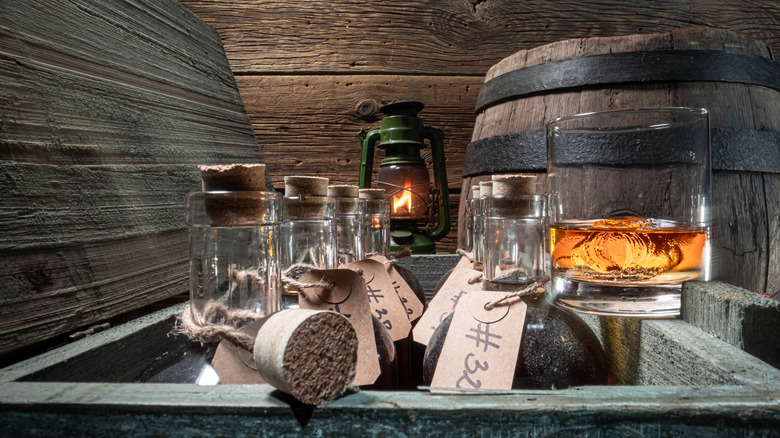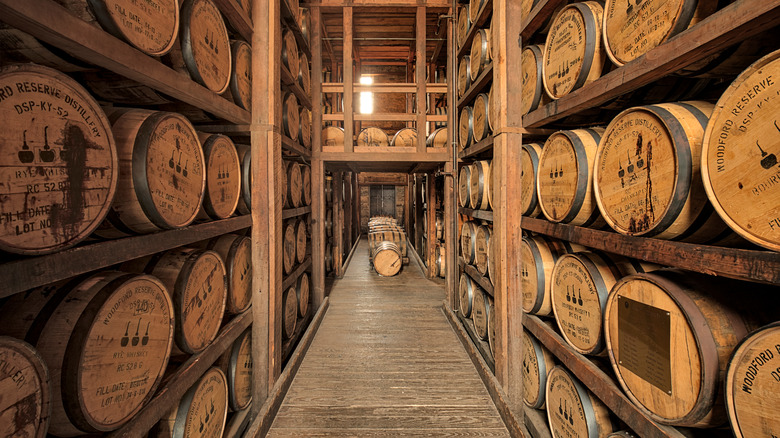How Bourbon Distilleries Aided The US During World War II
Bourbon is a distinctly American product; you'll never find a bottle of "bourbon" made abroad that can call itself such in the U.S. due to the 1964 Concurrent Resolution on Bourbon. That being said, bourbon is just another one of the branches twisting off the whiskey tree, so to speak. Irish and Scottish immigrants who moved into the Appalachian mountain range along the East Coast in states like Kentucky and Tennessee began producing their own grain-based spirits. The Brindiamo Group states that by the dawn of the 20th century, there were believed to be a whopping 500 whiskey distilleries in Kentucky, then prohibition ripped a 13-year-long hole in the industry, which had to turn to bootleggers or special government licenses to survive.
The classic scents of vanilla, oak, honey, and smoke waft through bourbon glasses throughout the United States today, thanks to the revival of the alcohol industry in 1933. But what most people don't realize is that distilleries went through a whole lot more after that, all thanks to a little world event called World War II. War changes everything, including what goes on in your kitchens and our cups, and bourbon was no exception.
Penicillin production
The United States didn't join World War II until after the attack on Pearl Harbor on December 7, 1941, but once it did, a lot of changes were instituted. Food items like sugar, coffee, canned foods (think tuna and spam), butter, and much more were eventually rationed, but what most people don't know is that bourbon distilleries were used to help the war effort as well! These distilleries stopped churning out the booze and started producing medicine, specifically penicillin.
Anyone who's ever studied war knows that disease is as deadly as anything else on a battlefield. The U.S. wasn't producing enough penicillin, so the government War Production Board converted bourbon distilleries in the U.S. into factories! Luckily, many of the industry's tools and machinery were applied to medicine production.
But medicine wasn't all the bourbon industry was good for. Alcohol production was still necessary for the war effort. It was used to manufacture ammunition and also essential for synthetic rubber, which the U.S. would have normally received from the South Pacific but was no longer accessible thanks to the efforts of the Japanese. But the distilleries were no longer making sweet sipping drinks; they were grinding out non-consumable high-proof spirits, which were also good for making things like antifreeze and antiseptic.

